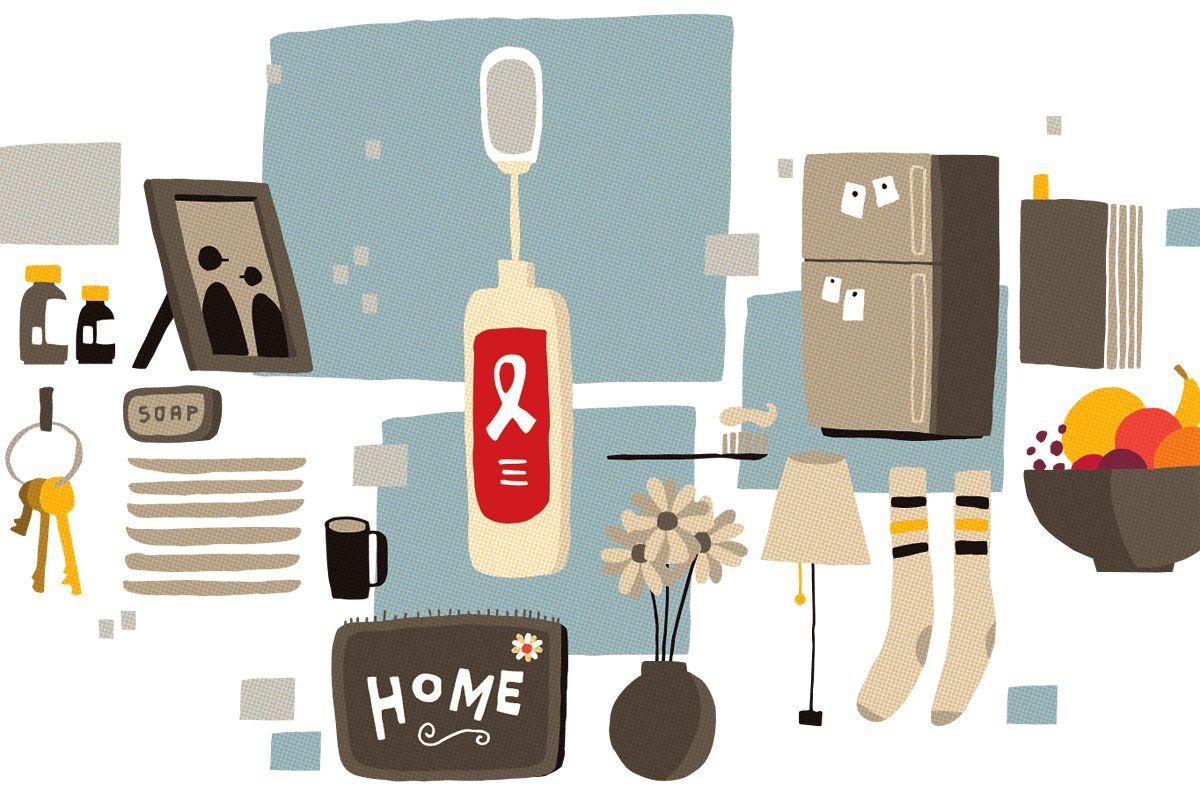
Earlier this month the FDA approved the first rapid home test for the diagnosis of HIV. Soon a person will be able to buy a kit, swipe an applicator across his gums, wait half an hour, and get the potentially life-altering result in the quiet of his own home.
Public-health experts hope that the convenience and confidentiality of the test will help control the HIV epidemic by identifying many of the estimated 200,000 infected but undiagnosed Americans. Once diagnosed, a patient can receive antiviral treatments that both improve his health and—critical to the control of the epidemic—reduce his contagiousness.
Enthusiasts of the test compare it to the home test for pregnancy, which became available over the counter in the late 1970s. Indeed the similarities are many: the home pregnancy test provides a result that often is emotionally complex. It also allows a woman to get a diagnosis quickly, cheaply, and away from the possibly disapproving gaze of her doctor.
But the similarities stop there. A positive pregnancy test often is often welcomed, whereas a positive HIV result never will be. The largest difference, though, is this: just about all pregnant women find their way to a medical practitioner within months of a positive test. For people with HIV, however, the rate of entry into health care is disappointing. Nationwide, about 77 percent of the 940,000 Americans diagnosed with HIV have been assessed medically and offered care. The remaining 23 percent, or another 200,000 people, are diagnosed but have never seen a nurse, doctor, or social worker to help them deal with the disease.
Reasons for avoidance vary, from a distrust of medications or doctors to a simple wish to be left alone because of not yet feeling ill. Cost (up to $20,000 annually) is also a concern, though most states provide medication for the uninsured. Whatever the reason, this group will derive no benefit from the home kit: the infection eventually will affect their health, and they will remain just as contagious to their next sexual contact.
Yes, the new kit provides an important step toward controlling HIV by facilitating diagnosis, but it also exposes a more complex problem: how to convince the 200,000 people who have been diagnosed but remain outside care to show up for a doctor's appointment. The remedy for this will not be new technology or a better antiviral therapy or even more funding. Rather, many will not enter care until the 31-year-old stigma that surrounds HIV goes away and the virus is seen for what it is: just another difficult but manageable chronic disease.
Uncommon Knowledge
Newsweek is committed to challenging conventional wisdom and finding connections in the search for common ground.
Newsweek is committed to challenging conventional wisdom and finding connections in the search for common ground.





